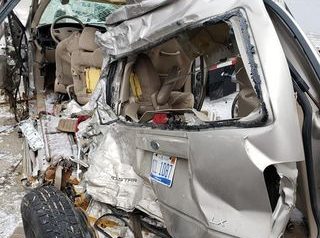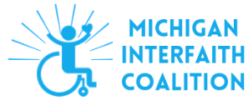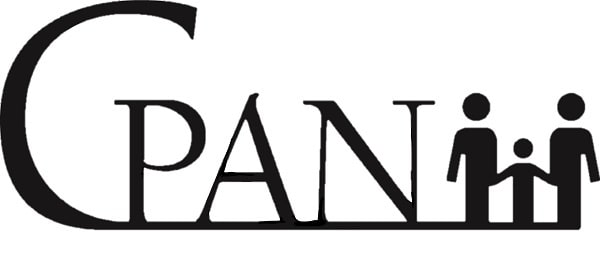Michigan Auto Crash Survivors
Have Been Stripped of the Necessary Care
They Were Promised
Since 1973 Michigan has had the best unparalleled care in the country for auto crash survivors with thousands of lives saved and restored. But not everybody thought a lifetime of security was worth a few extra bucks a month, so lawmakers decided to make huge cuts — particularly for those who rely heavily on Auto No Fault (ANF) to live.
In 2019 a bipartisan law changed ANF when the governor signed the Auto No-Fault reform bill (PA21-22), saying it was not perfect, but it could be fixed. So far, nothing has been fixed.
The new portion of the law that took effect July 2021 made life a nightmare for catastrophically injured auto crash survivors.
The No-fault Reform Hurt More Than It Helped
· Promised and paid for benefits were stolen
· Family members have to choose between caring for loved ones or providing for them
· The care thousands of disabled Michiganders rely on was stripped away
· Thousands of contracts were broken
· Attendant care agencies can no longer stay in business or are not accepting auto crash survivors due to the 45% cut.
· Michigan auto insurance rates are still higher than average even after these mass cuts.



With ANF reform, the two most devastating changes for the survivors and families are the reimbursement for in-home attendant care which has been slashed by 45%, as well as the restriction on family care to 56 hours a week, even if they have a prescription for more hours. And to make matters worse, the reimbursement for family members has also been slashed by 45% of charges as billed January 2019. Attendant care for catastrophically injured auto crash survivors includes essential tasks like getting in and out of bed, dressing, feeding, bathing, toileting, and countless other activities of daily life.
Families who were providing up to 168 hours a week of care are now restricted to 56 hours a week. Many family members had quit their jobs and gave up their careers to care for their loved ones. As a result of these cuts, these family members must seek employment and seek help from agencies to care for their loved ones. However, they cannot find this care because companies providing it have closed or are no longer accepting no-fault patients because they cannot operate with a 45% cut in reimbursements.
Consequently, now many catastrophically injured survivors requiring around the clock care, or more than 56 hours, are left without care. Many have been left at hospitals or placed in nursing homes which are ill-equipped and ill-staffed to provide the care that is required for catastrophically injured survivors with spinal cord or traumatic brain injuries. Families are exhausted physically, emotionally, and financially. Seven survivors that we know of have died as we enter 2022.
In addition, insurance companies are withholding, denying, and delaying payment or at a totally unacceptable rate, beyond the 45% cuts. This results in businesses closing leaving families to seek other help which is not available. Delaying of payment to families is causing them extreme financial distress, including losing their homes and cars.
July 31, 2023, the Supreme Court of Michigan annouced favorably for survivors and providers in the Andary Decision which should have allowed anyone injured before the 'Reform' to no longer be subjected to the 45% cut or the 56 hour limitation on family care. Unfortunately the insurance companies are not following the Supreme Court decision; delays, denials, and cuts continue. Since the insurance industry is exempt from the Michigan Consumer Protection Act and the Department of Insurance and Finance (DIFS) has not been helpful to survivors, those pre-2019 survivors continue to suffer along with those injured after the 'Reform'.
See our faces, hear our voices.



THE MCCA FUND
The most devastating fact is that there was $27 billion to care for these survivors. After the rebate of $400 per car in 2022, there is still $21.8 billion in the fund. When ANF was established, the Michigan Catastrophic Claims Association (MCCA) was created to protect insurance companies that could pay out millions of dollars for a single survivor. As a “reinsurer” the MCCA reimburses insurance companies once they pay claims in excess of $600,000. Every driver paid into this fund ($220 in 2019) when they purchased insurance as part of their PIP (Personal Injury Protection) policy and were promised unlimited, lifetime benefits if needed as the result of a crash. And now the governor has given away $3 billion of these funds set aside for care to all Michigan auto insurance policy holders. This premature refund (prior to Andary Supreme Court decision) contributed to the subsequent projection of a 3.7 billion dollar deficit; 3.1 billion was attributed to the refunds. Now, all drivers are subject to a $48 per year deficit fee for 15 years (per statute) = $720 to repay the refund and correct the .6 billion remainder of the deficit.
"WAIT AND SEE"
When asked about “fixes” to the reform, lawmakers said they want to “wait and see” what happens before they make any changes to fix the 2019 law. Many lawmakers admit they didn’t even read the 128-page bill or understand the consequences this legislation has had on patients and the healthcare system. But We Can’t Wait. Seven people have died; survivors are devastated as they are no longer getting the care and therapies they need. Families are exhausted physically, emotionally, and financially, trying to care for their loved ones without the benefits previously provided through ANF. People are losing their quality of life without the care and therapies they require every day.

It’s easy for some to lose sight of the people behind the policies. But here we are. We literally can’t live without the care we receive. Neither Medicare nor Medicaid covers what we need. See the Comparison Chart for more details.
Save care for Michigan crash survivors
Families need care
The changes implemented by Michigan lawmakers on July 1, 2021 are having devastating consequences on survivors and families.
We need legislators in Michigan to see their constituents that need care. We are real people. We need real care.
Stand with us!
We must band together as brothers, mothers, and friends to ensure that Michigan crash survivors and their families retain the care they need. Join us by volunteering your time to advocate for these survivors and their families by contacting your local government officials to drive the change we need.
How Can You Help?
We can’t be silent and hope everything works out. Neither should you.
This ramp to nowhere represents 45% cuts in fees to family and agency providers, and those that provide services to the catastrophically injured. Without this care, survivors are losing ground, being forced from their homes, moved to nursing homes, and even dying.
We Can’t Wait.
Join us by contacting your local government officials to drive the change we need.




